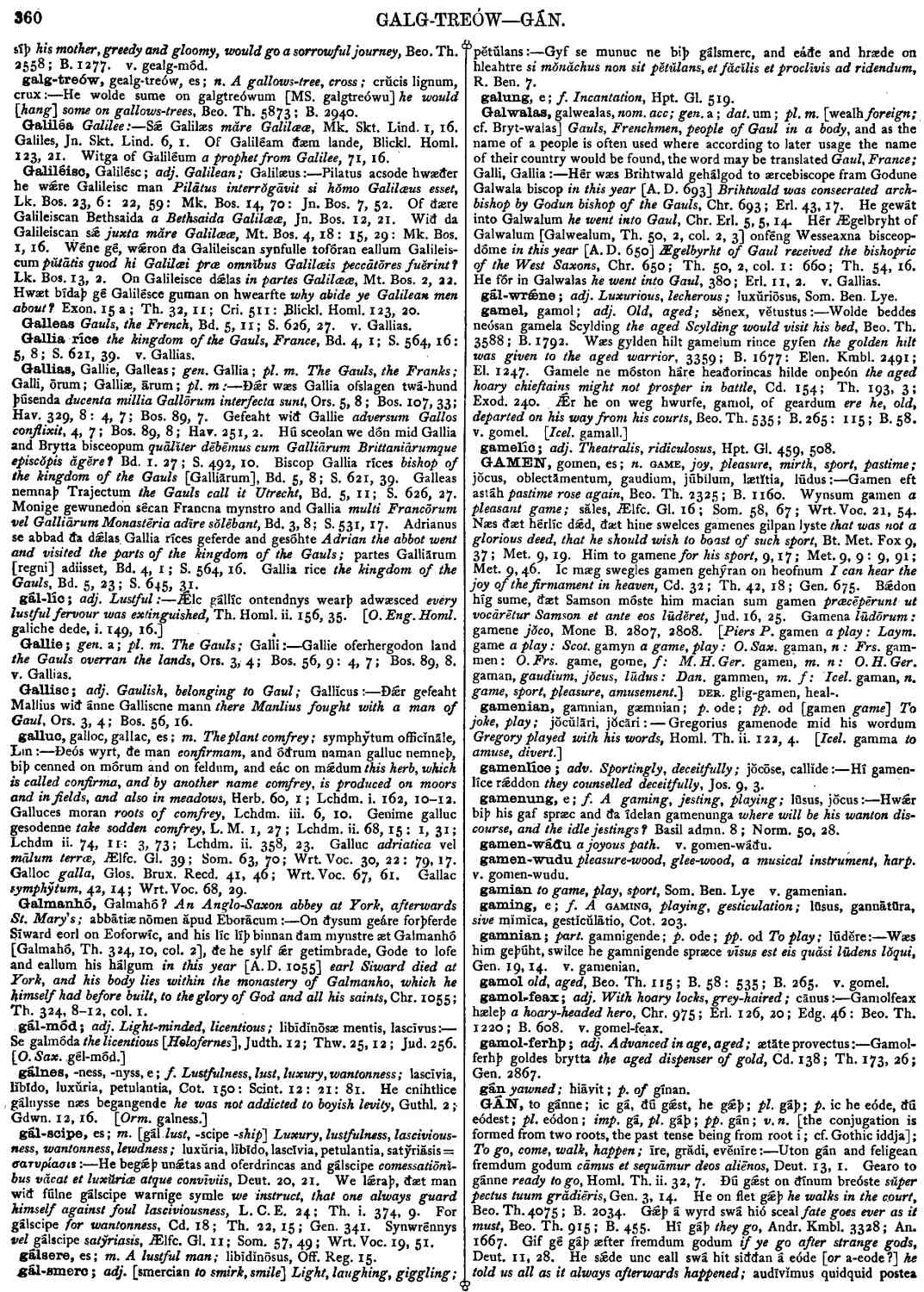GÁN
- verb [ anomalous ]
-
Uton gán and feligean fremdum godum
cāmus et sequāmur deos aliēnos,
- Deut. 13, 1.
-
Gearo to gánne
ready to go,
- Homl. Th. ii. 32, 7.
-
Ðú gǽst on ðínum breóste
sŭper pectus tuum grădiēris,
- Gen. 3, 14.
-
He on flet gǽþ
he walks in the court,
- Beo. Th. 4075 ;
- B. 2034.
-
Gǽþ á wyrd swá hió sceal
fate goes ever as it must,
- Beo. Th. 915 ;
- B. 455.
-
Hí gáþ
they go,
- Andr. Kmbl. 3328 ;
- An. 1667.
-
Gif gé gáþ æfter fremdum godum
if ye go after strange gods,
- Deut. 11, 28.
-
He sǽde unc eall swá hit siððan á eóde [or a-eode?]
he told us all as it always afterwards happened;
audīvĭmus quidquid postearei prŏbāvit eventus,
- Gen. 41, 13.
-
Eóde eall seó ceasterwaru togeánes ðam Hǽlende
tōta cīvĭtas exiit obviam Jesu,
- Mt. Bos. 8, 34 : Bd. 1, 7 ;
- S. 478, 12.
-
Sume for hungre heora feóndum on hand eódon
some for hunger went into the hands of their foes,
- 1, 15 ;
- S. 484, 5.
-
Gá hider
come hither,
- Gen. 27, 21.
-
Gáþ eów into ðære cyrcan unforhtlíce
go into the church fearlessly,
- Homl. Th. i. 508, 1.
Bosworth, Joseph. “GÁN.” In An Anglo-Saxon Dictionary Online, edited by Thomas Northcote Toller, Christ Sean, and Ondřej Tichy. Prague: Faculty of Arts, Charles University, 2014. https://bosworthtoller.com/13263.
Checked: 1